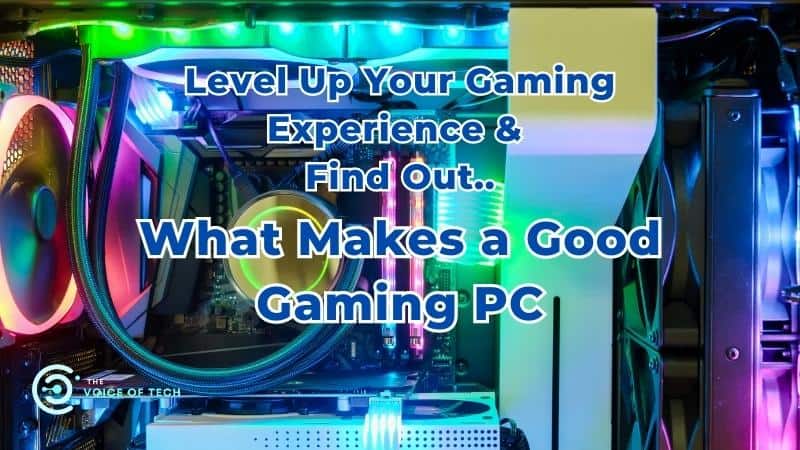
Expert Consulted: Adrian Gardiner. Years of experience buying both computers and computer parts for my own new customer builds has given me a unique perspective on building PCs. In this article, I’ll be sharing my knowledge and tips with you to understand what makes a good gaming PC.
Whether you’re a casual gamer, a competitive enthusiast, or anything in between, having the right hardware can make all the difference to what we could consider to be a good gaming PC.
In this article, I’ll break down the key components, discuss important considerations, and guide you on the path to finding the perfect gaming PC specification that suits your needs.
So, what makes a good gaming PC?
A good gaming PC should have a powerful processor, ample RAM, a high end graphics card, fast storage, efficient cooling, and a reliable power supply. Additionally, customization options, compatibility with the latest games, a well designed case for proper airflow and cable management would all contribute to a good gaming PC.
Read on to find out in more detail what makes a good gaming PC and how you can take advantage of this information for your own gaming rig.
Related Articles:
How to afford a gaming PC
45 PC Building mistakes to avoid
What Makes a Good Gaming PC? All You Need to Know
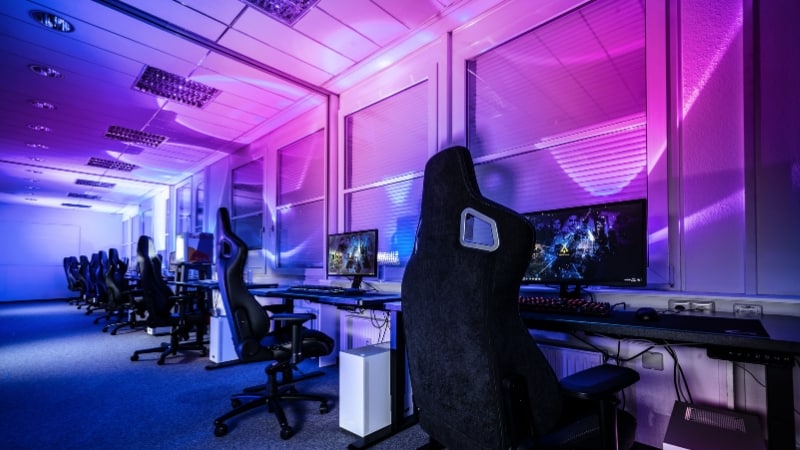
There are many ingredients to making the perfect gaming PC recipe. To some extent, the question of ‘What makes a good PC’ will differ from person to person, especially if their budget is very different and their expectations are not the same.
The following sections aim to cover all angles of what makes a good gaming PC.
Understanding Your Gaming Needs
Are you a casual gamer who likes a chill game of Minecraft? Or maybe you’re a professional League of Legends player? Perhaps you’re a serious enthusiast who wants to max out the settings on the latest AAA games like Skyrim or Counter Strike?
Your gaming needs will, to some extent, dictate what makes a good gaming PC for you.
Types of Gamer
There are many categories of gamer out there, but these are the main ones that I’m mainly aware of from the perspective of deciding on the right computer hardware and what makes a good gaming PC.
| Gamer Category | PC Specification Category |
Casual Gamer – these would be your infrequent players who enjoy gaming but not to the extent that it rules their lives – more a now-and-then pastime Retro Gamer – often using older technology, these players prefer to play games launched over the last few decades rather than the latest offerings Social Gamer – similar to casual gamers but play mainly to interact with friends or just connect with others | An Entry Level to Mid Range specification would be required for these types of gamers. |
| Core Gamer – this category would cover most of the players out there, spending a good amount of time on their favorite games and favoring the popular mainstream titles | High-end performance would be required here and so a powerful high-end specification would be essential. |
| Competitive Gamer – skilled players trying to hone their skills to become professional gamers Professional Gamer – highly skilled, hardcore gamers playing competitive games, often playing in tournaments as part of a team | High-end performance would be required here and so a powerful high-end specification would be essential. |
Gaming PC Specifications
For full details on the actual hardware components you’ll need for each type of Gaming PC specification mentioned above, plus costs, please refer to my in-depth article: How Much Does it Cost to Build a Gaming PC?
Key Components of a Gaming PC
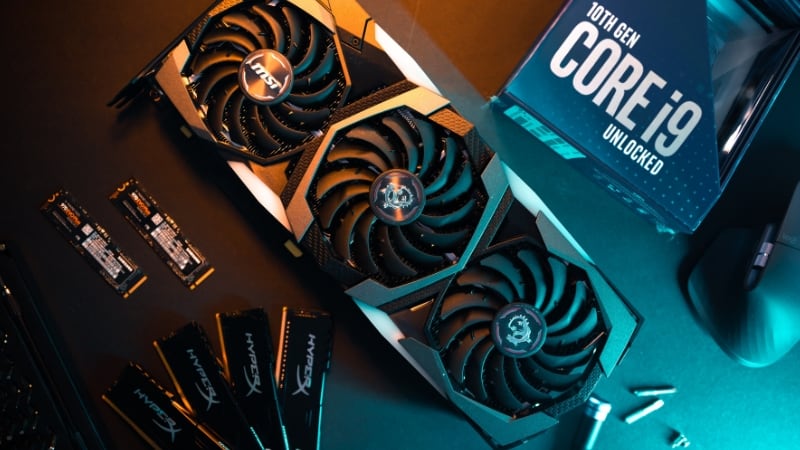
The main essential components you’ll need for a gaming PC are covered in the next few sections. When selecting components, always buy the very best, latest version that your budget will allow for.
This should not only give you the best performance for your budget, enabling you to play the latest games at high settings, but it will also mean your gaming PC will last you the longest before you have to think about upgrading to keep up with the specification changes required by the latest games.
In addition, where possible, always buy parts from the most well-known, trusted brands. Avoid unfamiliar component names unless they have excellent reviews and support.
I build computers on a regular basis for my customers and also have to support them. The last thing I want is to have to go out and replace faulty components on a new PC because I trusted a new brand – this has happened to me on a couple of occasions because the brand part I wanted was not in stock, and so I had to choose a manufacturer I had no experience with.
I very rarely have issues with major, well-known brand parts.
For each of the components below, I’ll be listing out the main well-known and trusted brands that I would be most happy to deal with, having had experience of using them. I would also like to point out that there are many other excellent brands that are perfectly fine – I’ve just never used them.
Using a new and unknown brand just to save money is, in my opinion, a bit of a shot in the dark as to whether it was the right decision or not and could give you hassle later on.
Processor (CPU)
The CPU is the brain of your PC and does all the thinking, handling all of the complex calculations and processes needed to make everything on your PC work smoothly. A CPU with more cores and the ability to operate at a higher frequency will allow your computer to perform faster and handle more tasks at the same time.
The CPU receives input from the gamer (such as keyboard and mouse actions) and the player’s interactions within the game. After interpreting these instructions, it relays them to the graphics card (GPU), guiding it on how to render the display.
The two main CPU manufacturers for gaming today are Intel and AMD. For gaming, I would say AMD generally gives you better ‘bang for your buck.’
Graphics Card (GPU)
The GPU handles all the beautiful visual imagery you see on screen. If you want stunning graphics at high resolutions with fast response time, you’ll need a powerful GPU. Like the CPU, there are only two GPU manufacturers to choose from for today’s gaming computers: NVIDIA and AMD.
Random Access Memory (RAM)
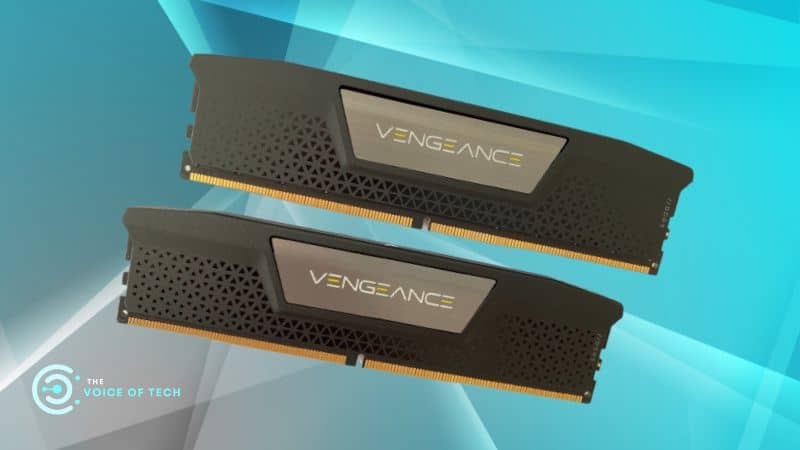
RAM is your PC’s short-term memory. The more you have, the smoother your games will run. It’s not that long ago that 8GB was considered plenty. Nowadays, 16GB is the standard for a mid-range gaming PC, and for high-end machines, 32GB would be the norm.
Recommended RAM brands: Corsair, Crucial, Dell, EVGA, HP, Kingston, Samsung.
Storage
Your games need a place to live, and that’s where storage comes in. SSDs are faster than traditional HDDs, particularly the NVMe PCIe M.2 devices, but they are more expensive.
I’d suggest a combo set-up (a SYSTEM and DATA drive) – use an M.2 SSD for your OS and favorite games (SYSTEM) and a larger SATA SSD for everything else up to 2 TB (DATA).
If you need more than 2 TB of storage for your second (DATA) drive and need to keep a lid on costs, I would consider using a HDD instead to save money (a SATA or M.2 SSD of over 2 TB would be much faster but would cost you more).
Recommend storage brands: Corsair, Crucial, Dell, Kingston, Samsung, SanDisk, Seagate, Western Digital.
Power Supply Unit (PSU)
A good quality PSU to power your system is essential, and good quality really matters here. Ensure you size your PSU with an adequate wattage rating so that it has enough power to meet your system’s power requirements.
Recommended PSU brands: Antec, be Quiet!, Cooler Master, Corsair, EVGA, Fractal Design, NZXT, SeaSonic. Thermaltake.
Motherboard
Your motherboard is the home where all your components live and connect to. It needs to have the right slot to suit your CPU, has enough slots for your RAM, slots for a couple of M.2 SSD drives, and, ideally, some room for upgrades.
Recommended Motherboard brands: ASRock, ASUS, Gigabyte, MSI.
Computer Case or Chassis
You’ll need a high-quality case with a good amount of space to fit all your chosen parts (in particular, check that your cooler and GPU will fit), good ventilation potential, and, ideally, a cable management system built in.
Recommended Case brands: Antec, be Quiet!, Cooler Master, Corsair, Fractal Design, In-Win, NZXT, Thermaltake.
Pre-Built vs Self Build Gaming PCs
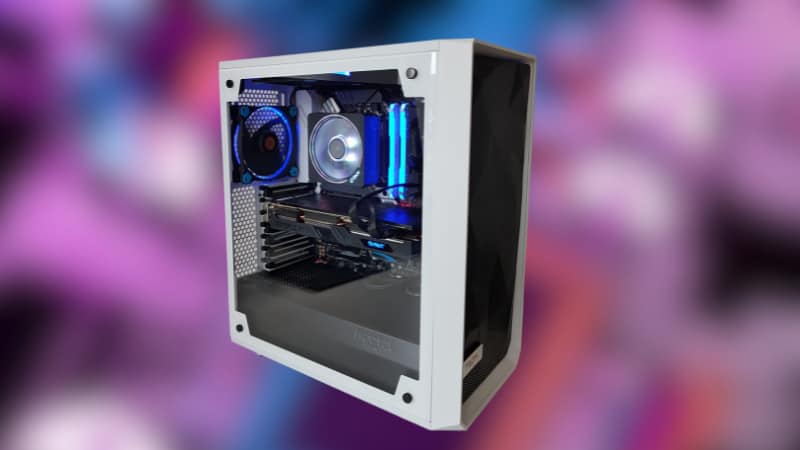
Deciding whether to go down the pre-built or self-built route is an important choice as there are advantages to both, depending on your particular circumstances and needs.
Pre-Built PC
If the thought of building your own PC fills you with dread or you simply don’t have the time, then a pre-built PC is the simplest way to get your new Gaming PC.
Self Build PC
Building your own computer is the best option as it will give you a lot more flexibility in the components that you choose, in addition to the rewarding experience of going through the build process.
It’ll be much easier for you to maintain, support, and upgrade your computer if you have any problems down the road with the knowledge gained from putting it all together.
In addition, there’s a good chance you’ll save money, too, as you’ll be saving on the labor costs and all the other overheads built into the price when you buy a pre-built computer from a manufacturer.
Building your own computer is not nearly as hard as you think, with the process being very modular and the huge support out there on the web from others who have already taken this route helping greatly.
The satisfaction gained from putting together your own gaming PC is immense and will give you a great sense of achievement that will stay with you for a long time.
Keeping Up with Future Gaming Trends
To help prepare for future gaming trends, try to include the latest and best hardware available in your new gaming PC.
This will help ensure that you are able to take advantage of the latest developments and not have to make major changes to your computer too soon just to stay current.
How Much Should You Allow for Your New Gaming PC?
To give you an idea of how much to allow for your gaming PC build, I’ve highlighted some approximate cost guidelines (based on current prices) below:
Entry Level Gaming PC $500.00
Mid-Range Gaming PC $1000.00
High-End Gaming PC $2000.00
For a much more detailed look at what you need to build your own Gaming PC with actual parts and costs, see my earlier article: How much does it cost to build a gaming PC
Frequently Asked Questions

Q1 How much should I spend on a Gaming PC?
This is a tricky question and depends on your gaming needs, i.e., what games you’re going to be playing and whether you will be playing to a competitive level, for example. As a guide, I would allow $600 for a basic gaming PC, $1000 for a mid-range PC, and $1500 upwards for a high-end PC.
Q2 Can I upgrade my existing PC to a Gaming PC?
In general, yes, it should be possible, but it will depend on the PC you have. Branded mass-manufactured computers have less upgrade potential than custom-built computers, usually with just RAM and Storage upgrades possible.
Custom-built units will often have more space for upgrades and standardized motherboards, making it much easier to add components. If you decide to upgrade, depending on what you’re changing, remember to upgrade your PSU.
Q3 Is a Gaming Laptop a good alternative to a Gaming PC?
Gaming laptops offer good portability, of course, but usually don’t have anywhere near the same level of performance or upgrade potential as a gaming PC.
Conclusion
There’s certainly a lot to consider when it comes to building the perfect gaming PC, whether it’s purchased as a pre-built system or it’s one that you’ve built yourself. It’s about understanding your particular gaming needs and knowing what components will best serve those needs whilst keeping a close eye on future gaming technology changes.
If you decide to build your own, good for you, it’s definitely worth it. On the other hand, if you decide to just buy a pre-built computer, I totally understand as sometimes we just have too much going on in our lives and need an easier solution.
Whether you’re a casual gamer or a hardcore professional, it’s worth remembering that the journey to what makes a good gaming PC is just as exciting as the final destination. Like me, you may find that you enjoy building computers just as much as you enjoy playing on them.

